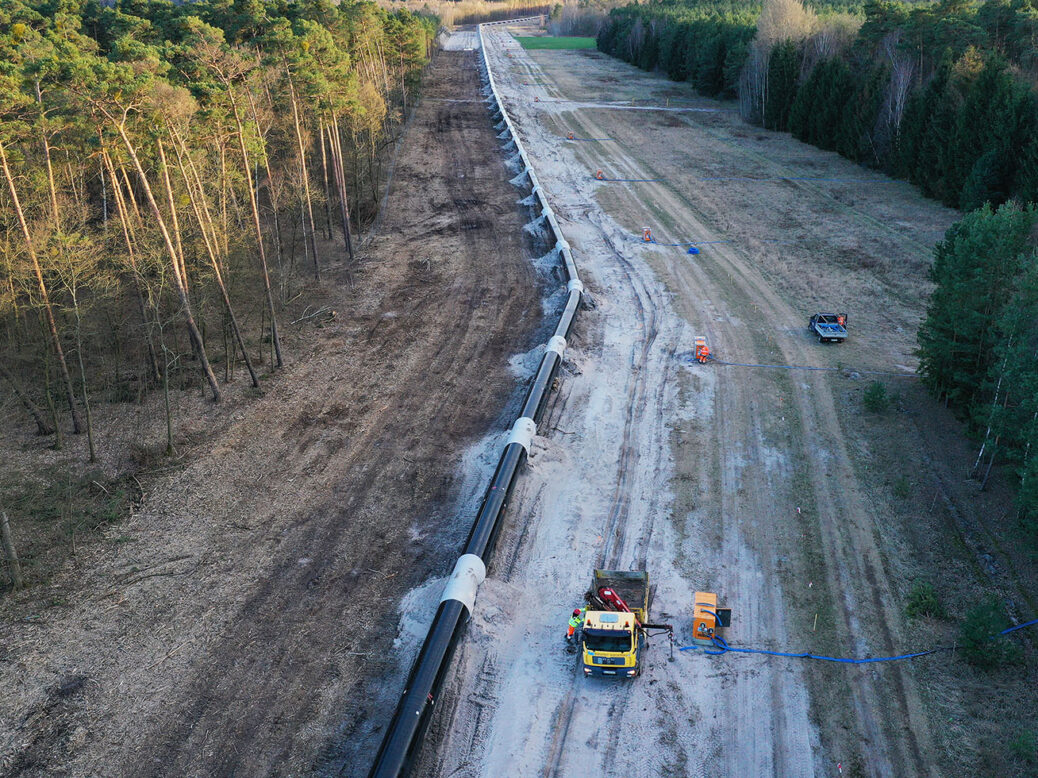
As the threat of a Russian invasion of Ukraine looms, one of the levers that Moscow has at its disposal is its valuable exports of natural gas. The EU continues to remain overwhelmingly dependent on these exports, even as tensions between Russia and the West have risen in recent years.
With the world facing a global shortage of natural gas this winter, European countries are especially reliant on Russian gas – with the almost sole exception of the United Kingdom.
According to data from Eurostat, the EU’s statistics agency, the bloc imported around 35 per cent of its foreign natural gas from Russia in 2019, the last year for which comprehensive data is available.
Of the largest European countries, Germany gets nearly half of its foreign gas from Russia; Italy about 40 per cent; France a fifth. The UK buys less gas from Russia, as a proportion of its total imports, than almost every other European country: a mere 9.7 per cent.
Several EU countries in eastern and central Europe, including Slovakia, Latvia and Finland, import virtually 100 per cent of their gas from Russia.
Although tensions between Russia and the EU rose following Moscow’s invasion of Ukraine's southern Crimean peninsula in 2014, the bloc’s dependence on gas from its geopolitical rival did not fall. Rather, imports rose: from about 115 billion m³ in 2014 to an all-time high of 180 billion m³ in 2019. According to Eurostat, the UK received its first shipment of Russian gas in 2017.
The Nord Stream 2 pipeline between Russia and Germany, which is almost complete, will be capable of transporting an additional 55 billion m³ of gas annually when brought onstream. Olaf Scholz, the German Chancellor, hinted this week that he might be prepared to sanction the project in the event of a Russian invasion. “It is clear that there will be a high cost and that all this will have to be discussed if there is a military intervention against Ukraine,” Scholz said.
That the EU is more dependent than ever on Russian gas can be put down to several factors. Gas is a cleaner fossil fuel than coal, which many European countries are now phasing out.
As Europe moves to decarbonise its power generation, many energy experts see natural gas as a lower-carbon “bridge fuel” which can serve as a source of energy while zero-carbon alternatives are developed. Last year, a draft version of the EU’s green energy taxonomy, a list of energy investments Brussels considers sustainable, controversially said that natural gas and nuclear projects should sometimes count as green.
In addition, some countries which plan to phase out nuclear power have continued to rely on natural gas to generate electricity. Some of the shortfall has been made up by renewables, but in many cases the use of natural gas has stayed stable or risen slightly over the past decade. In Germany, for instance, natural gas accounted for 90,000 gigawatt hours of energy generation in 2010, rising to 99,500 in 2020, according to data from the International Energy Agency, even as the figure for nuclear power fell by more than half.
The EU’s continued reliance on Russian natural gas may represent a weakness for the bloc if it were to decide to impose further sanctions on Moscow in the event of an invasion of Ukraine. The price of gas has already soared in recent months, hitting consumers hard.
A further surge in price triggered either by EU sanctions or Russia turning off the taps would be unwelcome news for households, which are already facing record inflation and a cost of living crisis.





